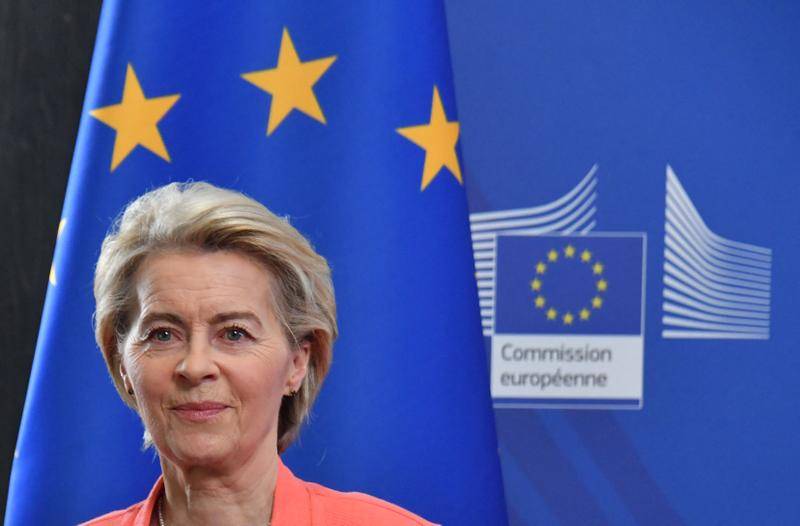Global Trade Tensions Escalate as Nations Respond to U.S. Tariffs
The world is bracing for a potential economic showdown following the U.S. administration’s imposition of new tariffs, with countries retaliating and experts warning of dire consequences for the global economy. The move, which aligns with former President Donald Trump's protectionist trade policies, has ignited a wave of responses from key global players, raising fears of a full-blown trade war.
The recent decision by the U.S. government to impose hefty tariffs on steel, aluminum, and other imports stems from a broader agenda to revive domestic manufacturing and reduce trade deficits. The administration has argued that foreign competitors, particularly China and the European Union, have engaged in unfair trade practices, harming American industries and workers.
While the move is being lauded by certain segments of the U.S. workforce, including steelworkers and protectionist policymakers, it has drawn sharp criticism from international leaders and economists. Many argue that these tariffs could backfire, leading to increased costs for American consumers and businesses reliant on imported goods.
Major economies across the globe have expressed their discontent with the new tariffs, promising retaliatory measures that could shake international trade. The European Union, China, Canada, and Mexico have all announced counter-tariffs, targeting key American exports such as agricultural products, motorcycles, and whiskey.
The European Union, for instance, has declared that it will impose tariffs on iconic American goods, signaling a direct challenge to the policy. European Commission officials have warned that such measures could lead to a prolonged economic conflict, affecting businesses and consumers worldwide.
China, a long-time adversary in trade disputes, has been particularly vocal in its opposition. The Chinese government has threatened to impose levies on American agricultural products, automobiles, and technology exports. Experts predict that this could severely impact U.S. farmers, who rely heavily on the Chinese market for soybeans and other crops.
The looming threat of a trade war has economists and market analysts on high alert. History suggests that trade wars can lead to inflation, economic slowdowns, and job losses, as witnessed during the Great Depression when protectionist policies contributed to a collapse in international trade.
Financial markets have already responded with volatility, with stock prices dipping amid uncertainty. Investors fear that escalating tariffs could disrupt global supply chains, forcing companies to reassess production strategies and relocate manufacturing hubs.
Industries dependent on international trade are bracing for significant repercussions. The automotive sector, which relies on global supply chains, is expected to face rising production costs. Major car manufacturers have warned that increased steel and aluminum prices will inevitably be passed on to consumers.
The agricultural industry, particularly soybean and dairy farmers, is also under threat. Retaliatory tariffs from China and other nations could result in a loss of key export markets, forcing American farmers to seek alternative buyers or risk financial ruin.
Additionally, the technology sector, which depends on imports of rare minerals and components, could witness disruptions. Companies like Apple and Tesla have already voiced concerns over potential cost hikes that may arise from increased tariffs on essential materials.
Within the U.S., the tariff imposition has sparked political debate. While protectionist politicians and manufacturing advocates support the move, free-market conservatives and business leaders have raised alarms over the long-term consequences.
Some lawmakers have called for negotiations with affected countries to prevent further economic instability. Senate leaders from both parties have urged the administration to reconsider the blanket tariff approach, emphasizing the need for strategic trade agreements rather than broad protectionist measures.
Internationally, diplomatic tensions are rising as affected countries seek to engage in negotiations while preparing for countermeasures. The World Trade Organization (WTO) has been drawn into discussions, with affected nations exploring legal avenues to challenge the U.S. tariffs.
Despite the ongoing tensions, there are possible pathways to de-escalation. Experts suggest that diplomatic negotiations, multilateral trade agreements, and revised tariff policies could help in mitigating the economic fallout.
The U.S. government has hinted at the possibility of trade talks with key partners, including China and the EU, in an attempt to reach mutually beneficial agreements. Trade analysts recommend that policymakers focus on fair trade reforms rather than outright protectionism to ensure long-term economic stability.
Multinational businesses, industry leaders, and consumer advocacy groups continue to push for a resolution, emphasizing the interconnected nature of the global economy and the importance of maintaining free and fair trade practices.
As global trade tensions reach new heights, the world watches closely to see how governments navigate this economic impasse. The response to U.S. tariffs has already set the stage for potential retaliatory measures, with implications that could ripple across industries and economies. Whether through negotiation or prolonged trade battles, the coming months will be crucial in determining the future of international commerce and economic cooperation.




No comments yet
Be the first to share your thoughts!